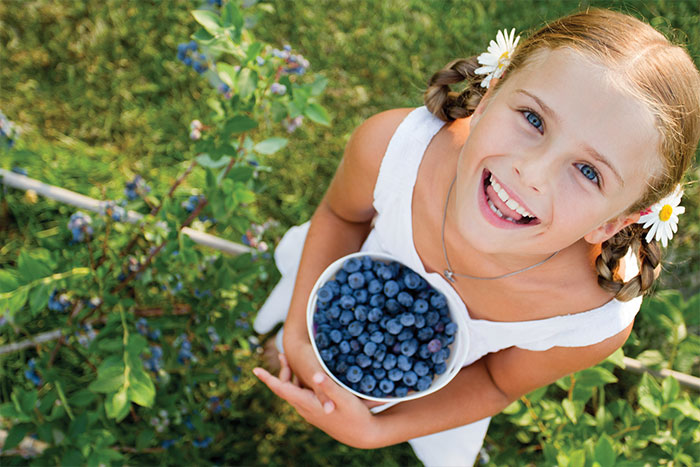The concept of “living with” organic is not only about food; it is the practice of lifestyle too. Living organically is about nourishing our health and nurturing a healthy environment for all living beings.
1. Healthy Environment = Healthy People
“Prevention is better than cure” is true for our health and we should do the same for the environment. Mother Earth provides us clean water, air, rich soil and abundant sunshine to grow our food. Preserving these resources ensures that we continue to harvest healthy food for our health.
2. Soil Rich in Nutrients
There are approximately 70 types of trace minerals that are crucial for our physiological and metabolic functions. Over the years, improper farming methods and excessive use of chemical fertilizers and herbicides have led to loss of trace minerals and bacteria that are crucial for breakdown of trace minerals in soil.
Plants and vegetables growing in nutrient-deficient land have low nutritional value and we are left with “empty harvest”. Today, we have abundant food deficient in nutrients.
THREE-PRONGED BENEFITS
Taiwan renowned dietician Wang Ming Yung, shares that embracing the healthier lifestyle benefits consumers, producers and Mother Nature.
A. Benefit to consumers
- Reject eating refined and processed food.
- Eat wholesome food to attain good health.
B. Benefit to producers
Overuse of fertilizers and pesticides may affect farmers’ health. Embrace the non-polluting cultivation method to stay healthy and grow nutritious food.
C. Preserving the environment
Reject harming Mother Nature. Nourish our environment so the air, water and soil burst with goodness.
WHAT IS ORGANIC FARMING?
Organic farming of fresh produce must fulfil organic production procedures to stipulated standards. This means planting in a less polluted ecosystem without using synthetic fertilisers, pesticides and other artificial chemicals for growth.
TIPS
IN-ORGANIC FARMING
To move towards organic farming, polluted farm land may need time to be rehabilitated to organic farm land. This “conversion” period is known as “in-organic” or “transitional” stage. Composting method is used to degrade or break down pollutants and turn acidic soil into alkaline condition.
ORGANIC FARMING PROCEDURES
1. Plant seeds in nursery trays
2. Water seeds on schedule
3. Sprout seeds
4. Grow seedlings
5. When seedlings grow to required height, transplant into the ground
6. Abundant roots growth indicates healthy seedling
7. Abundant roots anchor seedlings in the ground and increase absorption of nutrients and moisture for their growth
8-9. Vegetables grow gradually and healthily
10. Water vegetables on schedule
11-12. Fully-grown vegetables
13. Harvest time
14. After harvesting, roots are kept for composting into organic fertilizers.
15-16. Organic fertilisers are key elements for organic farming as they replenish nutrients depleted from soil by previous crops and improve soil fertility
17-19. Soil free from pollutants is rich in micro-organisms and will attract earthworms and insects
NOTE:
Organic vegetables are now available at selected Eu Yan Sang Outlets
NOTE:
Cameron Organic Produce welcomes the public to visit and explore their organic farm. The farmer, Mr. Lee Ong Sing has more than 18 years of experience in organic farming.
Cameron Organic Produce is located in Cameron Highlands.
Visit www.cameronorganic.com.my for more information.




